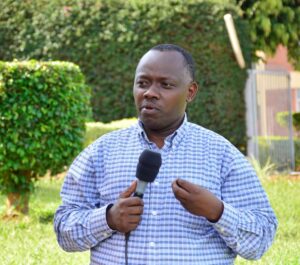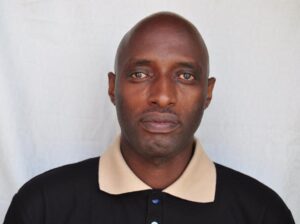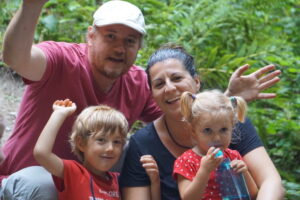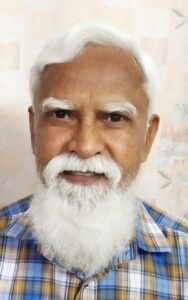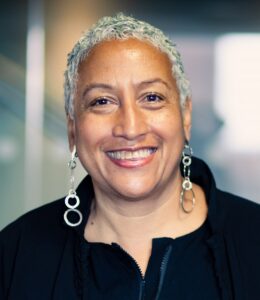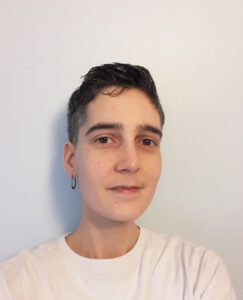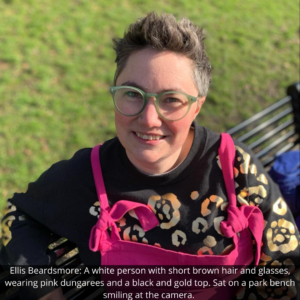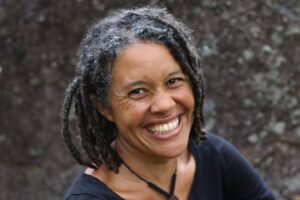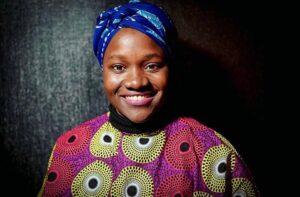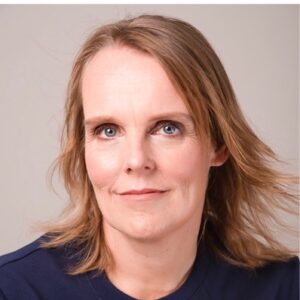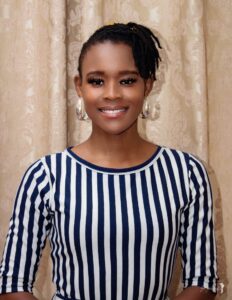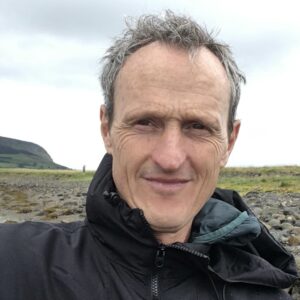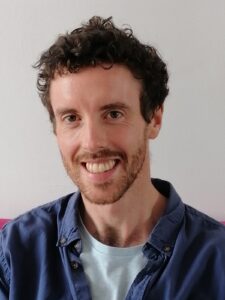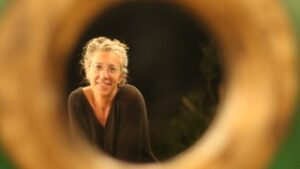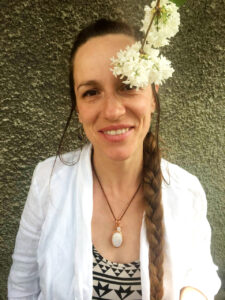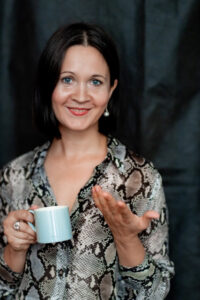Far In Far Out: Meet the project leaders and teams
PROJECT: Rwanda – Youth, Reconciliation and the Future
Project leader: Innocent Musore
Innocent Musore, the Founder and the Executive Director of GER, Peacebuilding activist in Rwanda and the region; with 10 years’ experience supporting the process of reconciliation and peace building in the region. He has been facilitating interactions, trainings and advocacy workshops to support existing reconciliation process, community recovery and the prevention of violence in Rwanda.
His activities engaged the healing of the post-genocide society and fighting the existing effects of the 1994 genocide against the Tutsi. He is interested in improving people’s relations and lives through development activities.
He will share the contribution of GER and CFOR to the reconciliation activities in Rwanda and highlight the existing conflicts situation in the region specifically Eastern DRC.
Innocent Musore holds a Bachelors Degree of Community Development and a Professional Certificate in Leadership and Facilitation: Community and Conflict Transformation issued by Process Work and CFOR.
PROJECT: Rwanda Youth – Gender Awareness, Reconciliation and Violence Prevention
Project leader: Gimu Ntayoberwa Shyikiro
With a Bachelor’s Degree in Public Health and an Advanced Diploma in Nursing, I have 20 year of professional experience with expertise in gender and development, women’s empowerment, positive masculinities promotion, Sexual and reproductive Health and Rights (SRHR) activism, I am well skilled in prevention of violence against women-VAW, conflict management, and HIV/AIDS programs.
I have experience in engaging me (Men Engage Approach) in Maternal and Child Health, Family Planning, Conflict resolution, Gender Transformative Approach, Community scorecards approach, leadership and decision making, Monitoring and evaluation.
During my professional experience, I worked with diverse categories of communities including; refugees, sex workers, cross-border truckers, fishers and fish sellers, orphans and vulnerable children, teen mothers and fathers and people living with HIV/AIDS. I am also experienced in working with different structures; women, youth (in and out of schools) and local government structures in rural and urban areas through local and international organizations.
PROJECT: Ukraine- Transforming living history towards a sustainable future
Project leaders: Boris Sopko and Neus Andreu Monsech
Boris Sopko (Kosice, Slovakia, 1973)
I am originally clinical psychologist and psychotherapist with private practice registered in Slovakia. Over last decade I felt need to work on deep personal experiences also in group setting and this way address more systemic level of processes emerging as difficulties of individual people.
I work internationally (Spain, Slovakia, Greece, Ukraine, Russia), last 10 years based in Barcelona /Catalunya, Spain. Main focus of my work is being teacher, supervisor, mentor within Diploma trainings in process work. Field of the mental health and gender dynamics together with collective and transgenerational trauma are very close to my heart.
Neus Andreu Monsech (Barcelona, Catalunya, 1979). I have a Law degree from the University of Barcelona and I’ve been a Process Work Diplomate since 2018.
I co-founded the PW formal training in Spain/Catalunya in 2010.The program today has around 40 students. I also co-founded the organization Fil a l’algulla, SCCL in 2009. We started as 3, and we are at this moment 19 women. We offer services to schools, public administration, organizations, communities, individuals and couples to support processes of change and transformation, particularly when systems or people are in crisis. We are all trained in process work, feminism and restorative justice. We have become over the years a reference in Catalunya.
At this moment I’m the Director of Fil a l’agulla, I support other organizations in moments of change and facilitate processes of reparation connected with gender violence.
I have always been interested in the social transformation and particular in supporting individuals on dealing with traumatic events into creativity and new patterns that stop the wheel of violence. My final project in my PW studies was about how PW adds into Transitional Justice, I was particularly interested in how the unprocessed history between Catalunya and Spain was a key factor in the to understand the escalation that we lived between 2010 and the present moment, and how PW approach and tools can support sustainable peace.
Boris and Neus
We have been a team since 2012, soon after we started our partnership. As a team we have taught together six editions of an Annual Facilitation training in Worldwork and several seminars in PW training programs. We have also taught supervision seminars together. We have co-facilitated Open Forums in Morava and also in Barcelona devoted to processing the trauma of the Civil War and the Franco dictatorship. We have also taught about Collective Trauma in different PW programs and we have facilitated conflicts and tensions in different contexts.
Together we have 2 children that are also our trainers. They support us in our task of working to create a better future, and are an ongoing inspiration for us.
PROJECT: Caste in India and the Diaspora
Project leader: Jay Revar, Gandhinagar, Gujarat State, India
Jay M. Revar (M.Phil.), is from India, who has worked as Assistant Professor of Clinical Psychology in Government Medical College (Gujarat, India) and presently freelancer psychotherapist; and applies Process Oriented Psychology in practice and in personal life for about three decades. To learn and teach are his passion.
Jay has compiled “Glossary of Process Work Terms” as defined by Arnold Mindell (the founder of Process Oriented Psychology) & Amy Mindell, from their 27 books published till June 2021. The Glossary is available free of cost on Arny’s website. Jay has published research papers on Mental Health and Process Work concept. He has also written articles on ‘Indian Caste System’, ‘British Colonialism’; and presently writing articles on ‘Hindu-Muslim relationships’, ‘Female Gender in India’.
PROJECT: Structural Discrimination and the System Edge – Pulling on the invisible thread
Project leader: Joy Warmington, Birmingham, UK
Joy is the CEO of brap ( www.brap.org.uk) a charity committed to transforming how we think about and practice equality. Joy also spearheads their work on learning and change. Joy’s area of expertise is leadership and organisational development, and she applies this lens to the work that brap does with organisations, boards, individuals and leadership teams. Joy first engaged with ”Process Work” in 2015, after participating on a Global Leadership programme facilitated by the Deep Democracy Institute and went on to study with them to achieve a Certificate in Process Orientated Psychology. Almost immediately, Joy became hooked on process work and recognized the possibilities presented by the approach to support work on discrimination, and actively sought to introduce the learning into brap. Upon happily discovering CFOR in 2017, Joy engaged in a number of intensive programmes, the Facilitation for Leaders Programme, before commencing the Diploma programme in 2019 . brap and CFOR began work together to use their respective skills and insights to explore how we might facilitate seemingly intractable issues.
Joy is a qualified teacher and facilitator and throughout her whole career has led on the design and delivery of anti-discriminatory work, with a focus on race inequality. Over the last two years in particular, working on anti-racism has been very much in vogue. In addition to designing and delivering a range of anti-racist programmes, some of which are directed at senior white presenting participants in the NHS, Joy also coaches and supports Black colleagues who ‘suffer’ the affects of racism within their careers.
Joy has the opportunity to work practical with process work in the delivery of training and also in real life situations. She has written a chapter in a due to be published “ Birmingham Book on Education” which describes the use of process work interventions in a heated dispute between parents and teachers over the teaching of LGBT curriculum in school. Joy and her colleagues, facilitated this dispute during 2019.
As a lifelong learner, Joy holds many qualifications including a MSc in Organisational Development and Learning, a Certificate in Education PGCE, a Postgraduate Diploma in Multicultural Education, and a and is a certified DPI coach.
PROJECT: UK – Understanding transphobia: dynamics, roles, history and politics
Project leaders: Rowan Hyde and Ellis Beardsmore
Rowan Hyde (they/them) is a trainee facilitator and Psychotherapist with Processwork UK, based in Derbyshire in the UK. They are interested in links between land justice, social justice, therapy and deep ecology, with a focus on anti-colonial and anti-capitalist practice. Rowan is a co-founder of Beyond the Box, a facilitation collective focusing on gender, sexuality and relationship diversity, and have been facilitating workshops on understanding gender diversity since 2019. They are also a musician, writer and artist, and are passionate about the freedom and vitality of creative expression.
Ellis Beardsmore (they/them) is a facilitator, trainer and celebrant. They specialise in creating spaces where people can connect with their authentic selves, bring deeper awareness to complex situations and celebrate transitions. They are training to be a psychotherapist and are specialising in working with the LGBTQ+ community, including running workshops on understanding Gender Diversity.
@ellisbeardsmore
PROJECT: Zimbabwe – Conversations for the Living Future
Project team: Maaianne Knuth, Mvuselelo Huni, Undine Whande, Michar Mushiko
Maaianne is an experienced facilitator and designer of group learning and co-creation processes. She is passionate about supporting people in coming together in more authentic and life-affirming ways. Maaianne’s story bridges Europe and Africa in an arc that travels from Copenhagen, where she studied international business, to Zimbabwe, where she co-founded Kufunda. Her work in hosting creative and generative processes, including conscious dance, mindfulness, and time in nature supports individuals in waking to who they are and what they can be within their communities.
She is a founding partner of Gateway Zimbabwe, a co-creation of Kufunda, ORAP and Trust Africa with a purpose to catalyze agency, enhance social cohesion, build healthy communities and contribute to reweaving the social fabric of Zimbabwe.
She was also founding partners of Reos Partners (www.reospartners.com), and Pioneers of Change. She holds a masters degree in international business and finance from the business school of Copenhagen, during which time she served as president AIESEC International (www.aiesec.net), a global student organisation of 50,000 students.
Mvuselelo Huni is the Chief Executive Officer of the Organisation of Rural Associations for Progress (ORAP), a Zimbabwean grassroots movement for development. She is passionate about community development, especially women and youth empowerment, and exploring new ways of working that allow people to grow in their wholeness. She is always thirsty to learn new approaches and to meet new people.
I am a peacebuilder at heart. Most of my life I have worked in various conflict resolution and social justice initiatives in Southern Africa. In the search for what enables non-violence and grows peace, my journey has led me increasingly into the domain of personal transformation and leadership development.
I now work as a coach and systems constellations facilitator accompanying individuals and organisations that seek to evolve their potential for healing and transformation.
Michar Mushiko is the Program Associate for Gateway Zimbabwe, a collaborative initiative of Kufunda Village, ORAP and TrustAfrica. Their mission and vision is to awaken personal and collective agency through processes that foster healing, diverse networking and encourage innovative leadership to reweave the social fabric of Zimbabwe. From Gateway’s inception, the role of the youth has been highlighted through the Systems Map which shows areas of life and possible movement through collaboration and play. She is a Gateway Fellow, Ubuntu Lab Alumni member, Warriors For The Human Spirit student and uses her passion for the arts and for facilitation to work with teams to create spaces for participatory and generative engagement.
PROJECT: Ireland, Northern Ireland & England
The ‘Seanchaí’ Project: The Storytelling History of the Island of Ireland Continues
Project leaders: Paul Callery and Pádraig Cotter
Paul grew up in the northwest of Ireland but has spent most of his adult life in the Basque Country and in London, where he now lives. His background is in education where he focussed on developing generative and integral models using critical and reflective practices. He currently mentors and supports Unaccompanied Asylum-Seeking Minors. Paul is continuously engaged in learning and development within the field of Process Orientated Psychology, working in private practice with individuals, couples, and organisations. He has a deep interest in the Irish experience, how we live it and how it lives in us.
Pádraig is a Clinical Psychologist in the NHS and member of the Research Society of Process Oriented Psychology United Kingdom (RSPOPUK). He has worked at the National Suicide Research Foundation in Ireland and in Adult Mental Health and Clinical Health Psychology in Ireland and England. Pádraig has an interest in how social, political, and economic issues arise within individual psychotherapy and individual psychotherapy within the processing of world issues. One such area is the relationship between Ireland and England and how it arises at an individual, systemic and societal level.
PROJECT: Turkey – On the power of dreaming in authoritarian nightmares
Project leaders: Serra Ciliv and Çağla Aykaç
Serra is a trainee facilitator and psychotherapist with Processwork UK. Her practice is mainly informed by her experience in and love for unfolding processes of creativity and leadership in individuals, communities and organisations.
Her studies and work experience in process-oriented psychotherapy, politics, arts & culture and history have focused on forms of belonging and opposition; intergenerational and collective trauma; minority cultures; feminist and nature based views of relating; experiences of displacement, and creative forms of resilience.
In her former life in Istanbul, Serra co-founded and acted for 18 years as director of !f istanbul Film Festival, an interdisciplinary international arts event, a community of support for alternative filmmakers, and a platform for free expression and diversity in Turkey. She is also a board member for Anadolu Kultur, an arts and culture organisation that works for equality and intercultural dialogue. Like many others in Turkey, both spaces have been hard hit by ruptures and political oppression which eventually led to her exile.
In her work as a cultural worker and organiser, Serra has worked extensively with artists, communities and minority groups building networks of project-based alliances; helping develop resilience and competence; mutualization of resources, and grassroots organising around issues of environment, LGBTQI+ identities, and intercultural dialogue.
Since she left Turkey in 2018, she lives and works part time in a permaculture and reforestation community in the south of Spain; applying her skills in sociocracy and process facilitation in the co-creation of a vision for a regenerative land-based project. She also still works as a producer, filmmaker and curator in cinema.
Çağla is a trainee facilitator and worldworker with the Processwork UK school. She is a university professor, a facilitator, a political activist, and a learner. As a worldworker, she practices conflict facilitation with individuals, institutions, and social movements; she trusts the intelligence and the power that emerge from conflicts as transformative forces in a world in need of change.
In her facilitation practice, she enjoys exploring the affective and healing dimensions of politics, creative processes, altered states of consciousness, addictions. She works with chronic bodily symptoms, dreams, sounds, and political tensions within individuals and collectives. She is interested in feeding the internal fire that keeps us alive, and training muscle and voice for bodily and intellectual self-defence and alliance building through friendships and affinities.
Çağla holds a PhD in sociology and has been teaching in various universities in Turkey, France, and Switzerland since 2010. She teaches classes in gender studies, cultural and political theory, research methodologies, and practice based art research. She is interested in affects and politics, nationalisms and racisms, identities and belonging, migration and nomadism, ecology and gender. Her work is grounded in minority knowledge production and transmission. She makes use of critical theory, feminist theory and practice, and radical pedagogies.
She works in French, English and Turkish, and practices activist translation and is a certified yoga teacher. Since 2016, she set her base in Geneva, Switzerland, after leaving Turkey for political reasons related to the regressions in the peace process in Turkey and the movement of the Academics for Peace. She is familiar with the realities of exile and individual and collective trauma, and is trained in feminist, anti-racist, and queer world-makings.
PROJECT: Romania – Women and community leadership
Project leader: Andreea Pandelescu
I call myself an apprentice of the Heart.
On my own personal journey of self-discovery I encountered many approaches to personal and collective healing that I want to share with my community.
Inspired by the learning I gained on Facilitating the future course, organized by CFOR, I founded in 2020 an NGO called Matca-the center for facilitation. Its mission is to create safe spaces where we can explore collective issues in my home country Romania. This means workshops, forums, practice groups, ceremonies and rituals to celebrate our shared humanity.
The vision for my NGO is to create a center for collective healing, where we learn to practice compassion in action and new ways of being together with other people, with other beings and nature.
My main focus right now is on women’s issues, with a particular interest to explore and create a common vision with activists and experts on this topic from different areas: NGO, politics, economics, art, business, psychology, spirituality.
PROJECT: Russia – Collective trauma
Project leader: Anastasiia Orekhova
Anastasiia is a passionate life explorer who started her path researching chemical compounds, then focusing on the pharmaceutical market and now getting more and more engaged in exploring the human psyche and collective unconscious.
She holds a Master degree in Analytical Chemistry and now is on the path to a Master degree in Psychology.
Anastasiia has 15 + years Project Leader experience in strategic and operational management (country, region and multi-region scale) among cross-cultural and cross-functional teams; building business processes and structures from “zero” and managing significant changes.
On a personal level when her job satisfaction dramatically declined, her kids got a bit independent, her body developed chronic symptoms and her relationship patterns and the world issues became too obvious and painful to be ignored, she decided to accept it as an invitation to explore life even deeper.
Anastasiia senses her Life Myth as being alongside and serving as a guide on the path from darkness to light. And even if the darkness might not become lighter, anxiety and fear of it might disappear and fresh winds of change will come.
